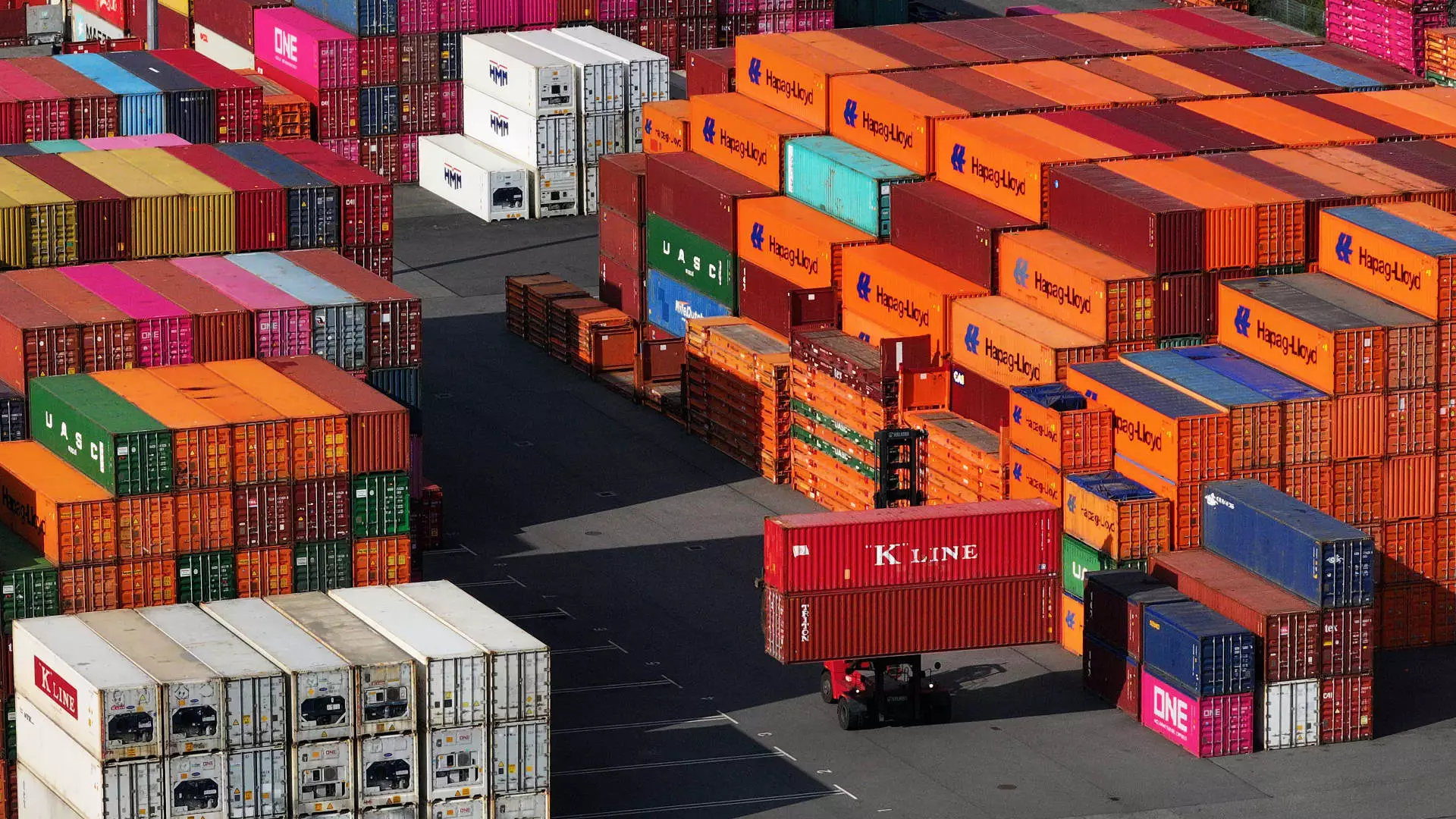The current global economic landscape is rife with uncertainty, partly due to the rise of protectionist policies that challenge the principles of free trade. Among the most debated and contentious issues is President Donald Trump’s approach to tariffs. He recently speculated that tariff revenue could potentially replace federal income tax, a notion that garners skepticism from economists across the spectrum. This article dissects this ambitious strategy, highlighting its inherent flaws and questionable viability.
Ambitious Yet Improbable: The Tariff Replacement Proposal
The idea proposed by Trump, that tariffs could somehow generate so much revenue as to eliminate the federal income tax, may resonate with some circles but lacks grounding in reality. In an interview with Fox, he declared, “There is a chance that the money from tariffs could be so great that it would replace income tax.” Such statements reflect a significant misunderstanding of economic mechanisms and are likely to mislead both policymakers and the public.
Renowned economists are quick to refute this claim, emphasizing that the revenue generated from tariffs stands in stark contrast to the vast tax base provided by income taxes. Senior economist Alex Durante from the Tax Foundation articulated this skepticism succinctly: “It’s not a realistic proposal.” His comment encapsulates the gnawing doubt evident in expert analyses; there’s little evidence to support the idea that tariffs can produce revenue that even approaches the scale of income tax collections.
Comparing Apples to Oranges: Tariffs versus Income Tax
The fundamental flaw in Trump’s proposal lies in the glaring differences between the two revenue-generating frameworks. The tariffs imposed on imported goods are derived from a significantly smaller base. In 2023, the U.S. imported $3.1 trillion worth of goods, while the taxable income across the country exceeded $20 trillion. The stark disparity is enough to raise serious questions regarding the feasibility of Trump’s solution. Economists like Kimberly Clausing from the Peterson Institute for International Economics have outlined these comparisons meticulously, casting further doubt on the audacity of the proposal.
The projection made by White House trade advisor Peter Navarro, estimating a potential annual revenue of $600 billion from tariffs, is not only optimistic but ungrounded in economic realities. Mark Zandi from Moody’s noted that achieving even $100 billion to $200 billion would be aspirational. As tariffs climb, basic economic principles suggest that consumption patterns will inevitably change, thereby limiting the anticipated revenue.
The Perils of Counterproductive Policy
An alarming implication of escalating tariffs is the potential dampening effect on both consumption and overall economic growth. Policymakers often fail to grasp that as tariffs rise, demand for imported goods typically declines. Classe implications can be detrimental not only to businesses relying on foreign products but also to consumers who face escalating prices for essentials.
The Tax Foundation’s report indicates that imposing a 10% universal tariff could ultimately result in a reduction of U.S. gross domestic product by 0.4%. These types of calculations illustrate that tariffs, rather than serving as a straightforward method of revenue generation, can often backfire by contracting economic growth and consequently hampering federal revenue.
What Lies Ahead: Navigating Economic Turbulence
With the International Monetary Fund recently revising U.S. growth projections downward—a stark adjustment from 2.7% to 1.8%—the ramifications of continued tariff negotiations are becoming increasingly unsettling. Policymakers should heed these warnings about the broader impacts of tariffs and engage in more thoughtful discussions regarding effective trade policies rather than ideological posturing.
The world is watching the U.S. grapple with the ramifications of its tariff policies. At a time when the global economy increasingly favors cooperation over confrontation, America faces an uphill battle in reclaiming its reputation as a promoter of free and fair trade. It’s imperative to question whether the current tariff strategy is genuinely serving American interests or merely further entrenching political divisions. The consequences are dire and could resonate far beyond the present, shaping the economic landscape for generations to come.

Leave a Reply